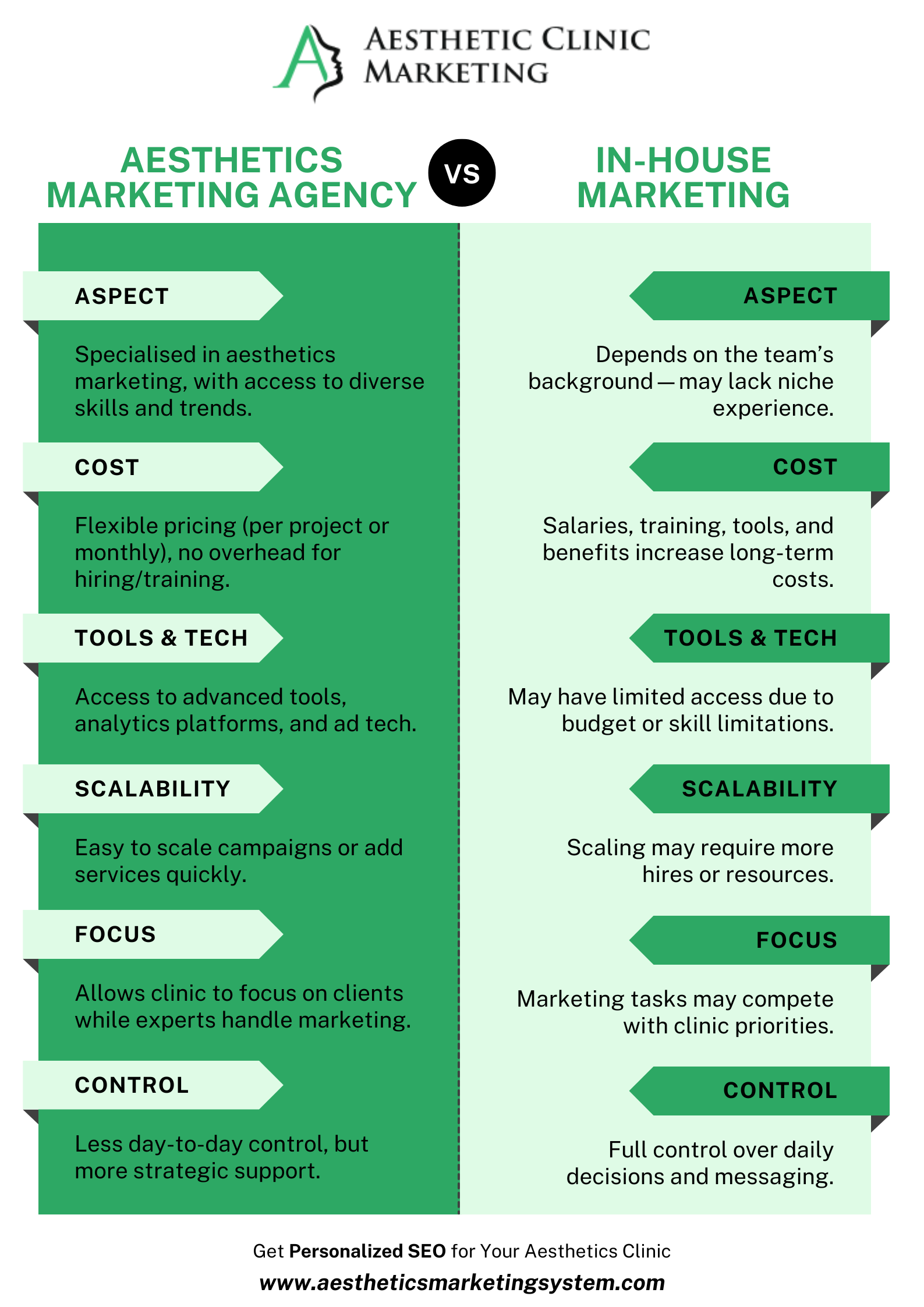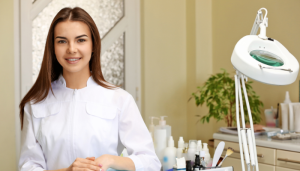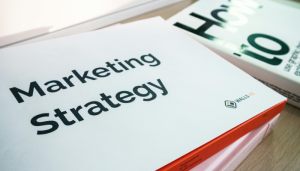Aesthetics Marketing Agency vs In-House

Table of Contents
ToggleMarketing can make or break your aesthetics brand—and how you manage it matters more than ever. Should you build an in-house team that lives and breathes your brand daily, or partner with a specialized agency that brings fresh strategies and industry insight to the table? It’s a decision that can shape everything from your brand presence to your bottom line.
In this post, we’ll unpack the pros, cons, and key considerations to help you choose the right approach for lasting impact.
Key Takeaways
Identify your specific marketing needs before choosing between an agency or in-house team.
Agencies provide specialised skills and flexibility, while in-house teams offer deep brand knowledge.
Consider your budget carefully; agencies can save costs on salaries and benefits, but in-house teams may provide better long-term value.
Communication dynamics differ; in-house teams may have easier access to stakeholders, while agencies bring fresh perspectives.
Think about a hybrid approach; combining agency expertise with in-house knowledge can maximise effectiveness.
Understanding Aesthetics Marketing Needs
Before deciding whether to partner with an agency or build an in-house team, it’s important to really get to grips with what your aesthetics practise actually needs from its marketing efforts.
It’s not just about getting more clients; it’s about getting the right clients and building a sustainable business. Let’s break down some key areas to consider.
Identifying Your Target Audience
Okay, so you offer treatments. But who are you trying to reach? Are you focusing on younger clients interested in preventative skincare, or an older demographic looking for anti-ageing solutions? Maybe you’re aiming for a mix!
Knowing your ideal client is the first step. Think about things like:
Age range
Location
Income level
Specific concerns (e.g., acne, wrinkles, pigmentation)
Once you have a clear picture, you can tailor your marketing to speak directly to them. It’s like aiming a dart – you need to know where the bullseye is!
Defining Your Marketing Goals
What do you actually want to achieve with your marketing? Is it:
Increasing brand awareness?
Generating more leads?
Boosting appointment bookings?
Launching a new treatment?
Your goals should be specific, measurable, achievable, relevant, and time-bound (SMART). For example, instead of saying “I want more clients,” try “I want to increase appointment bookings by 20% in the next three months.”
Assessing Your Current Marketing Strategy
Take a good, hard look at what you’re already doing.
What’s working? What’s not?
Are you active on social media? Do you have a website?
Are you running any ads?
Gather some data. For example:
Platform | Activity | Results |
|---|---|---|
Posting 3 times a week | Low engagement, minimal lead generation | |
Website | Basic information, no blog | Low traffic, high bounce rate |
Google Ads | Running ads for specific treatments | Moderate traffic, low conversion rate |
Understanding where you stand now will help you identify gaps and opportunities. It’s like taking stock before you go shopping – you don’t want to buy things you already have, or forget something important!
Benefits of Hiring an Aesthetics Marketing Agency
Access to Industry Expertise
When you’re running an aesthetics practise, you’re probably focusing on, well, running the practise! Marketing might not be your strong suit, and that’s perfectly fine. That’s where an agency comes in.
A good agency that specialises in aesthetics, meaning they already know the market, the trends, and what works. They’ve got the knowledge and experience to get your message to the right people.
Scalability and Flexibility
One month you might be pushing a new treatment; the next, you’re focusing on a seasonal offer. An agency can scale up or down as needed. Need more social media posts? They’ve got it. Want to run a big ad campaign? No problem.
It’s all about having the flexibility to adapt to your needs without the hassle of hiring and training new staff.
Comprehensive Marketing Solutions
Think of an agency as your one-stop shop for all things marketing. They can handle everything from website design and SEO to social media and email campaigns. This means you get a joined-up approach, where all your marketing efforts are working together to achieve your goals.
It’s about having a strategy that covers all bases, so you can focus on what you do best: providing top-notch treatments to your clients.
Hiring an agency means you’re not just getting individual services; you’re getting a team that understands the bigger picture and can create a marketing plan that actually delivers results.
Advantages of an In-House Marketing Team
So, you’re thinking about keeping your marketing internal? There are definitely some perks to having your own team, especially when it comes to aesthetics. Let’s have a look at some of the reasons why this might be the right move for your practise.
Deep Brand Knowledge
An in-house team lives and breathes your brand. They’re not juggling multiple clients; they’re completely focused on your business. This means they develop a really strong understanding of your values, your services, and your clients.
They know what makes you tick, and that can translate into marketing that feels authentic and connected.
Direct Communication
One of the biggest advantages is how easy it is to communicate. No need for endless emails or waiting for updates. You can just walk down the hall and have a chat. This direct line makes it easier to respond quickly to changes and keep everyone on the same page.
It also means you can give feedback instantly, which can really speed things up.
Control Over Marketing Strategies
Want to change direction? Got a new idea? With an in-house team, you’re in the driver’s seat. You have direct oversight of all marketing activities, ensuring everything aligns with your goals and standards.
This level of control can be really reassuring, especially if you’re particular about how your brand is presented. Plus, you can adapt your strategies as needed without having to go through an external agency.
Cost Considerations in Aesthetics Marketing
Budgeting for Agency Services
It’s really important to understand how agencies structure their fees. You might see a few different models:
Project-based fees: You pay a set amount for a specific campaign or project.
Retainer agreements: You pay a monthly fee for ongoing services.
Performance-based pricing: The agency’s fee is tied to the results they achieve (like leads or sales).
Make sure you know what’s included in the price. Does it cover ad spend? Content creation? Reporting? Get it all in writing to avoid surprises.
Evaluating In-House Costs
Thinking about keeping marketing in-house? Don’t just look at salaries. There’s more to it than that. Consider these costs:
Salaries and benefits: Obvious, but important.
Training and development: Marketing changes fast. Your team needs to keep up.
Software and tools: Think CRM, design software, analytics platforms.
Time: How much time will your team spend on marketing vs. other tasks?
It’s easy to underestimate the true cost of an in-house team. Make sure you factor in everything to get a realistic picture.
Long-Term Financial Implications
Okay, so you’ve looked at the short-term costs. Now, what about the long game? Think about the potential return on investment (ROI) of your marketing efforts.
Factor | Agency | In-House | Hybrid |
|---|---|---|---|
Initial Investment | Potentially higher | Potentially lower | Combination of both |
Ongoing Costs | More predictable, often fixed | Can fluctuate with training, tools, etc. | Varies depending on the split |
Potential ROI | Higher, due to expertise and resources | Can be lower without specialised skills | Balanced approach to ROI |
Scalability | Easier to scale up or down | More difficult to adjust quickly | Moderate scalability |
Consider how your marketing strategy will impact your bottom line over the next few years. Will it bring in more clients? Increase revenue per client? These are the questions that will help you make the right choice.
Collaboration and Communication Dynamics

Agency Collaboration with Your Team
Working with an aesthetics marketing agency means bringing in an external team, and how well they mesh with your existing staff is really important. It’s all about making sure everyone’s on the same page from the get-go.
Regular meetings, clear communication channels, and a shared understanding of goals are key. It might feel a bit clunky at first, but with a bit of effort, you can create a smooth, productive working relationship.
In-House Team Communication Benefits
One of the big pluses of having an in-house marketing team is, well, they’re in-house. This means communication tends to be more straightforward. They’re part of the daily office banter, they understand the company culture inside out, and popping over for a quick chat is easy.
This can lead to quicker decision-making and a more joined-up approach to your marketing efforts. It’s like having a marketing brain that’s directly plugged into the heart of your practise.
Balancing External and Internal Input
Whether you go with an agency, an in-house team, or a bit of both, finding the right balance between external and internal input is vital. Agencies bring fresh ideas and a different perspective, while your in-house team knows your practise and your clients best.
The trick is to create a system where both can contribute their strengths, without stepping on each other’s toes. Maybe that means having the agency focus on big-picture strategy, while the in-house team handles day-to-day tasks.
Or perhaps it’s about setting up regular feedback sessions where everyone can share their thoughts and ideas. Whatever you do, make sure everyone feels valued and heard.
Getting the communication right can seriously impact the success of your marketing. It’s not just about sending emails; it’s about building relationships, understanding different perspectives, and working together towards a shared goal.
Performance Measurement and Analytics
It’s all well and good having a marketing strategy that works, but how do you know if it’s actually working? That’s where performance measurement and analytics come in. Whether you’ve got an agency or an in-house team, keeping a close eye on the numbers is key to making smart decisions and getting the most from your investment.
Tracking Agency Performance
When you hire an agency don’t just sit back and hope for the best. You need to track what they’re doing and, more importantly, what results they’re getting. Here’s what to consider:
Regular Reports: Make sure your agency provides regular, easy-to-understand reports. These should detail what they’ve been up to and the impact it’s had.
Clear KPIs: Agree on Key Performance Indicators (KPIs) upfront. Are you looking for more website traffic, more leads, or higher sales? Make sure everyone’s on the same page.
Open Communication: Don’t be afraid to ask questions. If something in the report doesn’t make sense, get clarification. A good agency will be happy to explain.
In-House Metrics and Reporting
If you’ve got an in-house team, you’ve got more direct control over what’s being measured. This can be a real advantage, but it also means you need to be proactive in setting up systems for tracking and reporting.
Use the Right Tools: There are loads of analytics tools out there, from Google Analytics to social media dashboards. Find the ones that work best for your needs and make sure your team knows how to use them.
Set Realistic Goals: Don’t expect overnight miracles. Set achievable targets and track progress over time. This will give you a much clearer picture of what’s working and what isn’t.
Share the Knowledge: Make sure everyone in the team has access to the data and understands what it means. This will help them make better decisions in their day-to-day work.
Choosing the Right KPIs
Choosing the right KPIs is super important. It’s easy to get bogged down in vanity metrics (like social media followers), but what you really need to focus on are the numbers that directly impact your bottom line. Here are a few examples:
Conversion Rate: How many website visitors turn into leads or customers?
Cost Per Acquisition (CPA): How much does it cost to acquire a new customer?
Return on Ad Spend (ROAS): How much revenue do you generate for every pound you spend on advertising?
Remember, the best KPIs will vary depending on your specific goals and business model. Take the time to think about what really matters to you and choose your metrics accordingly.
Making the Right Choice for Your Practise
Choosing between an aesthetics marketing agency and an in-house team is a big decision. It’s not one-size-fits-all; what works brilliantly for one practise might be a disaster for another.
Let’s break down the key things to think about so you can make the best choice for your unique situation.
Evaluating Your Unique Needs
Be honest about what your practise really needs.
What are your current marketing strengths and weaknesses?
Do you need a complete overhaul, or just some help with specific areas like social media or SEO?
What’s your budget?
And how much time and energy can you realistically dedicate to managing marketing, whether it’s an agency or an in-house team?
Consider these points:
Current Marketing Performance: Where are you succeeding, and where are you falling short?
Budget: How much can you realistically spend on marketing each month/year?
Time Commitment: How much time can you or your staff dedicate to marketing oversight?
Considering Hybrid Approaches
Maybe the best answer isn’t either an agency or an in-house team, but a bit of both. A hybrid approach can give you the best of both worlds. For example, you could have a small in-house team to handle day-to-day marketing tasks and brand consistency, while using an agency for specialist services like paid advertising or website development.
This way, you maintain control while still benefiting from specialist know-how.
A hybrid model allows you to tailor your marketing efforts to your specific needs and budget, providing flexibility and control. It’s about finding the right balance that works for your practise.
Long-Term Strategic Planning
Think about the long game. Where do you want your practise to be in 5 or 10 years? How will your marketing strategy help you get there? An agency might be great for quick results, but an in-house team can build a deeper understanding of your brand and your clients over time.
Consider how each option aligns with your long-term goals and growth plans. It’s about setting yourself up for sustained success, not just a short-term boost.
Conclusion
There’s no one-size-fits-all when it comes to marketing your aesthetics brand—just the right fit for your goals, resources, and vision. An in-house team can offer control and close alignment with your brand voice, while a specialized agency brings deep expertise, creative horsepower, and the ability to scale fast.
The key is knowing what stage your business is in, what kind of growth you’re aiming for, and who’s best equipped to help you get there. Whichever route you choose, make sure it’s one that supports not just your next campaign—but your long-term success.
Frequently Asked Questions
What is an aesthetics marketing agency?
An aesthetics marketing agency is a company that helps aesthetic clinics promote their services, such as cosmetic treatments and skincare, to attract more clients.
What are the benefits of hiring an agency?
Hiring an agency gives you access to experts who know the industry well, and they can provide flexible marketing solutions tailored to your needs.
Why might I prefer an in-house marketing team?
An in-house team knows your brand deeply, allowing for better communication and control over your marketing strategies.
How do costs compare between an agency and an in-house team?
Agencies often have a fixed fee structure, which can be more flexible than the ongoing costs of hiring full-time in-house staff.
Can I use both an agency and an in-house team?
Yes, many businesses find success by combining an in-house team with an agency to benefit from both perspectives.
What should I consider when choosing between an agency and in-house?
Think about your specific needs, budget, and the level of expertise you require for your marketing efforts.








